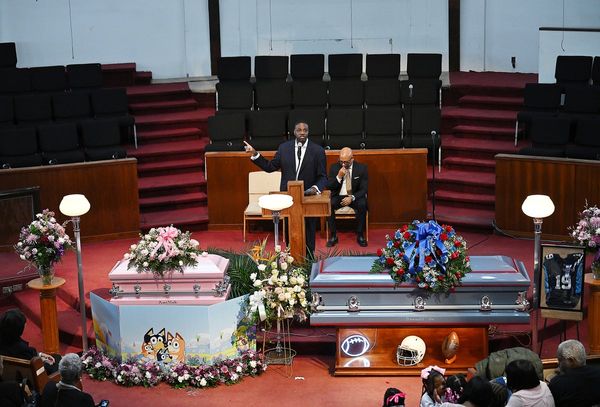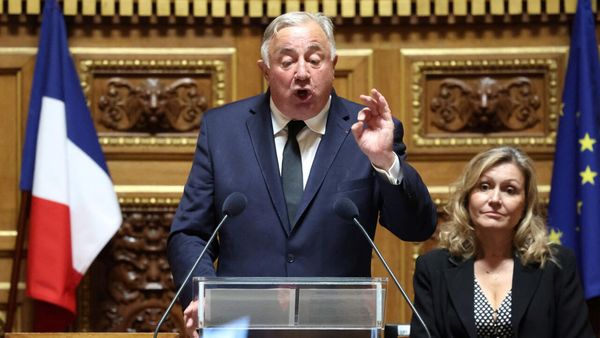Last month, hundreds of very experienced Seattle-area Boeing engineers walked out the door. They chose to retire early with the realization they'd have a significant cut to their pension payouts if they delayed.
Though this quirk in traditional pension plans is not unique to Boeing, the outcome is a local brain drain that will accentuate a looming experience gap at the jetmaker.
Boeing has pushed out the launch of an all-new airplane toward the end of this decade. By then, there'll be a limited number of senior engineers left who worked on development of the last all-new plane — the 787, delivered in 2011 — and have detailed knowledge of that complex process and its pitfalls.
Boeing's white-collar union said more than 500 highly experienced U.S. engineers and more than 130 technical staff retired in November.
For most of them, it was because a pending interest rate adjustment would otherwise have dramatically slashed their lump sum pension payouts by as much as an entire year's salary.
To try to retain the most critical expertise, Boeing identified 26 key engineers represented by its white-collar union, the Society of Professional Engineering Employees in Aerospace, and offered them specific financial enticements to stay, SPEEA spokesperson Bill Dugovich said.
Boeing offered each "about $400,000, mostly in Boeing stock" if they stayed two years. Only nine accepted the offer, he said.
Lynne Hopper, Seattle-based Boeing vice president of engineering strategy and operations, in an interview said the jetmaker is hiring engineers at a strong clip.
She cited substantial engineering development work in progress across the company where those new hires can gain experience.
That includes innovative defense and space engineering projects in addition to work in the Puget Sound region at the commercial airplanes unit certifying jets that are derivative variants of prior models, such as the 777X.
"I think we have lots of opportunities to build the capabilities that we'll need," Hopper said. "I anticipate we'll use that talent for future products."
Outflow of experience
Boeing Commercial Airplanes has about 17,000 engineers in total, with more than 14,000 of those located in the U.S., including about 12,000 in the Puget Sound region.
That Boeing would lose hundreds of its most experienced local engineers this year became inevitable as employees assessed their pension situation.
Only employees with a traditional pension that offers the option of a lump sum payout rather than monthly checks were affected. It doesn't apply to Boeing machinists, who don't have that type of plan.
With inflation rising steeply, many engineers choose to take their Boeing pension payout in a single lump sum that they can invest, rather than a monthly check that is not adjusted as the cost of living rises.
For those employees close to retirement, choosing to exit after the end of November would have slashed about a year's salary out of their lump sum payout.
That's because the lump sum equivalent in actuarial terms to a lifetime of monthly checks is calculated under a formula set by the Internal Revenue Service based on interest rates. When rates go up, the expectation is that a lump sum invested will yield higher growth and so a lower amount is granted.
For the engineers, the rates adjust annually each November. Anyone who retired before the end of November got a lump sum based on last year's interest rates.
Inputting this year's much higher interest rates into the IRS formula means employees retiring from December qualify for a substantially smaller lump sum.
SPEEA said 560 engineers and 135 technical staff chose to leave in November, the vast majority close to retirement age. For the year through November, SPEEA lost a total of 1,375 engineers at Boeing along with 471 technical staff.
One 36-year Boeing veteran whom the company appointed a technical fellow, its elite category of engineers, said he retired last month to avoid taking a big financial hit.
"I couldn't ignore that," said the engineer. "It would be irresponsible."
While acknowledging the loss of experience, Hopper, the engineering vice president, said Boeing has been adding significant numbers of new engineers to its technical workforce.
"We were on a really strong hiring spree in 2022. We exceeded our growth plan," she said. "We're constantly hiring, whether it's brand new engineering graduates or people with established skills in aviation."
Across all divisions — Commercial Airplane, Defense and Space, and Global Services — Boeing currently employs a total of 57,600 engineers.
She said Boeing has been able to attract and retain engineers even in the "very competitive talent market, especially here in Puget Sound."
By the end of this year, it will have hired about 9,000 engineers, about 6,500 of those in the U.S.
And Boeing has been documenting how its engineering work is done and standardizing technical design reviews so the "tribal knowledge" acquired through experience can be more readily passed down to younger engineers.
The loss of so many senior people exiting this year will be a stiff test of that strategy.







